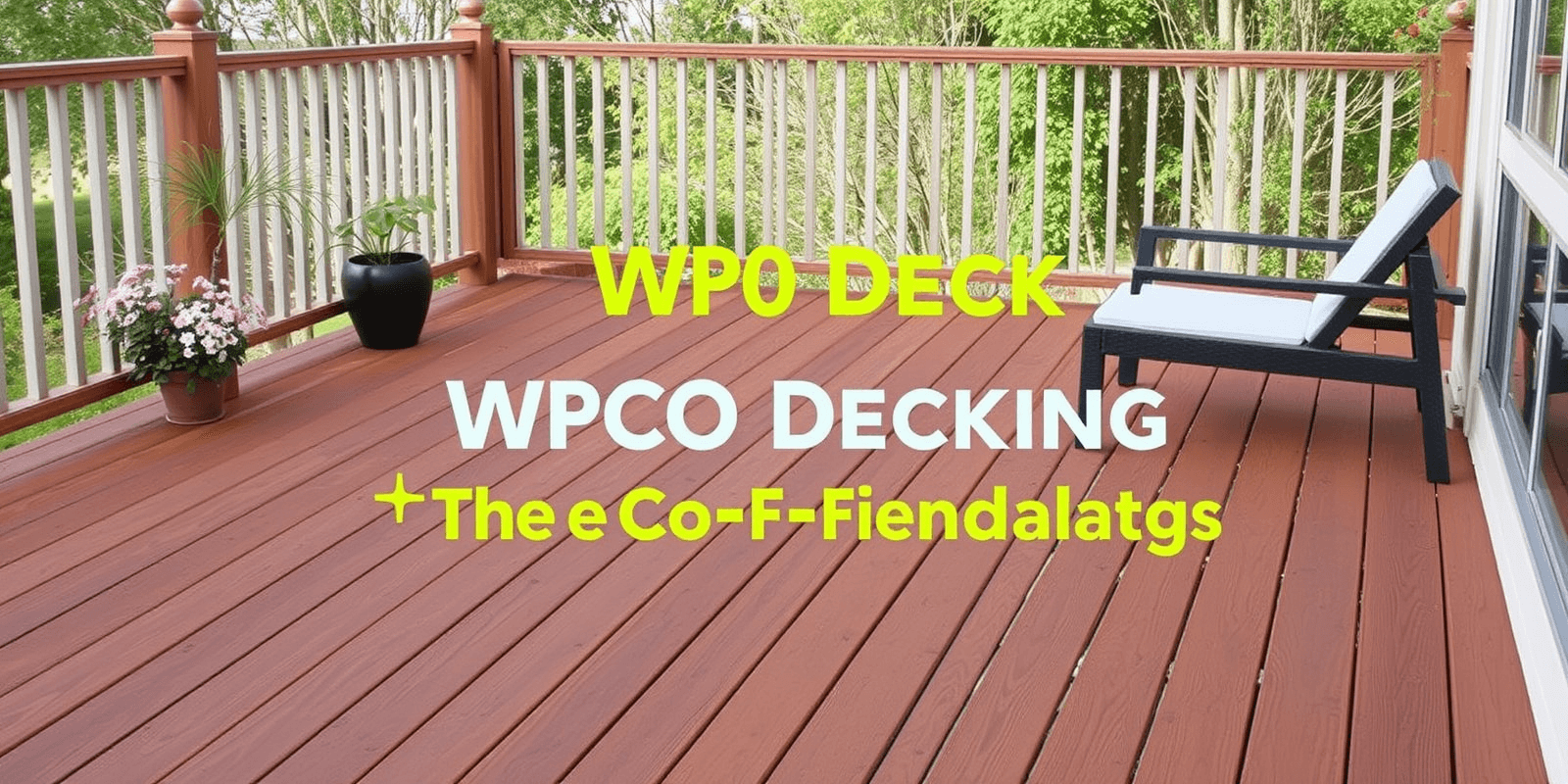Physical Address
304 North Cardinal St.
Dorchester Center, MA 02124
Physical Address
304 North Cardinal St.
Dorchester Center, MA 02124

Compare the environmental impact of WPC decking to traditional wood decks and learn why WPC decking is a more eco-friendly choice for your outdoor flooring project.
“`html
In recent years, the choice between WPC (Wood Plastic Composite) decking and traditional wood decks has become a topic of increasing interest among homeowners and environmentalists alike. Both options offer beautiful and functional outdoor spaces, but they differ significantly in terms of their ecological footprint. This article delves into the environmental impact of each material, focusing on how WPC decking offers a more sustainable alternative to traditional wood decks.
Traditional wood decks are made from natural timber sourced from forests around the world. While these decks can be aesthetically pleasing and durable, their production involves significant environmental costs. One of the primary concerns is deforestation, which leads to habitat loss, soil erosion, and the release of carbon dioxide into the atmosphere. Additionally, the harvesting process often requires the use of heavy machinery that contributes to air pollution and greenhouse gas emissions. Furthermore, untreated wood decks require regular maintenance with chemicals like stains and sealants, which can leach into the soil and waterways, posing risks to local ecosystems.
WPC decking, on the other hand, is an innovative material that combines wood fibers and plastic to create a highly durable and low-maintenance product. One of the most compelling advantages of WPC decking is its use of recycled materials. Many manufacturers incorporate post-consumer plastics and wood fibers, diverting waste from landfills and reducing the demand for new raw materials. This not only conserves natural resources but also helps mitigate the environmental impacts associated with extracting and processing virgin materials.
By using recycled materials, WPC decking significantly reduces the need for timber harvesting. This, in turn, helps preserve forest ecosystems and the biodiversity they support. Forests play a crucial role in regulating the Earth’s climate by absorbing carbon dioxide and providing habitats for countless species. Choosing WPC decking over traditional wood decks is a conscious decision to protect these vital natural resources and combat deforestation.
Another key advantage of WPC decking is its durability and longevity. Unlike traditional wood decks, which may degrade over time due to exposure to moisture, sunlight, and pests, WPC decking is resistant to rot, mold, and insect damage. This means that WPC decks require less frequent replacement, thereby reducing overall waste generation. Moreover, when WPC decking eventually reaches the end of its lifespan, it can be recycled again, creating a closed-loop system that minimizes waste and promotes sustainability.
WPC decking also requires minimal maintenance compared to traditional wood decks. Regular cleaning with soap and water is usually sufficient to keep it looking pristine. In contrast, traditional wood decks often need periodic treatments with chemicals to prevent decay and enhance appearance, which can have negative environmental consequences. By opting for WPC decking, homeowners can enjoy a low-maintenance outdoor space while minimizing their ecological footprint.
In conclusion, while both WPC decking and traditional wood decks offer unique benefits, WPC decking emerges as the more environmentally friendly option. Its use of recycled materials, reduced reliance on timber harvesting, extended lifespan, and minimal maintenance requirements make it a superior choice for those seeking to minimize their ecological impact. As awareness of environmental issues continues to grow, WPC decking represents a promising solution for creating sustainable and beautiful outdoor living spaces.
“`